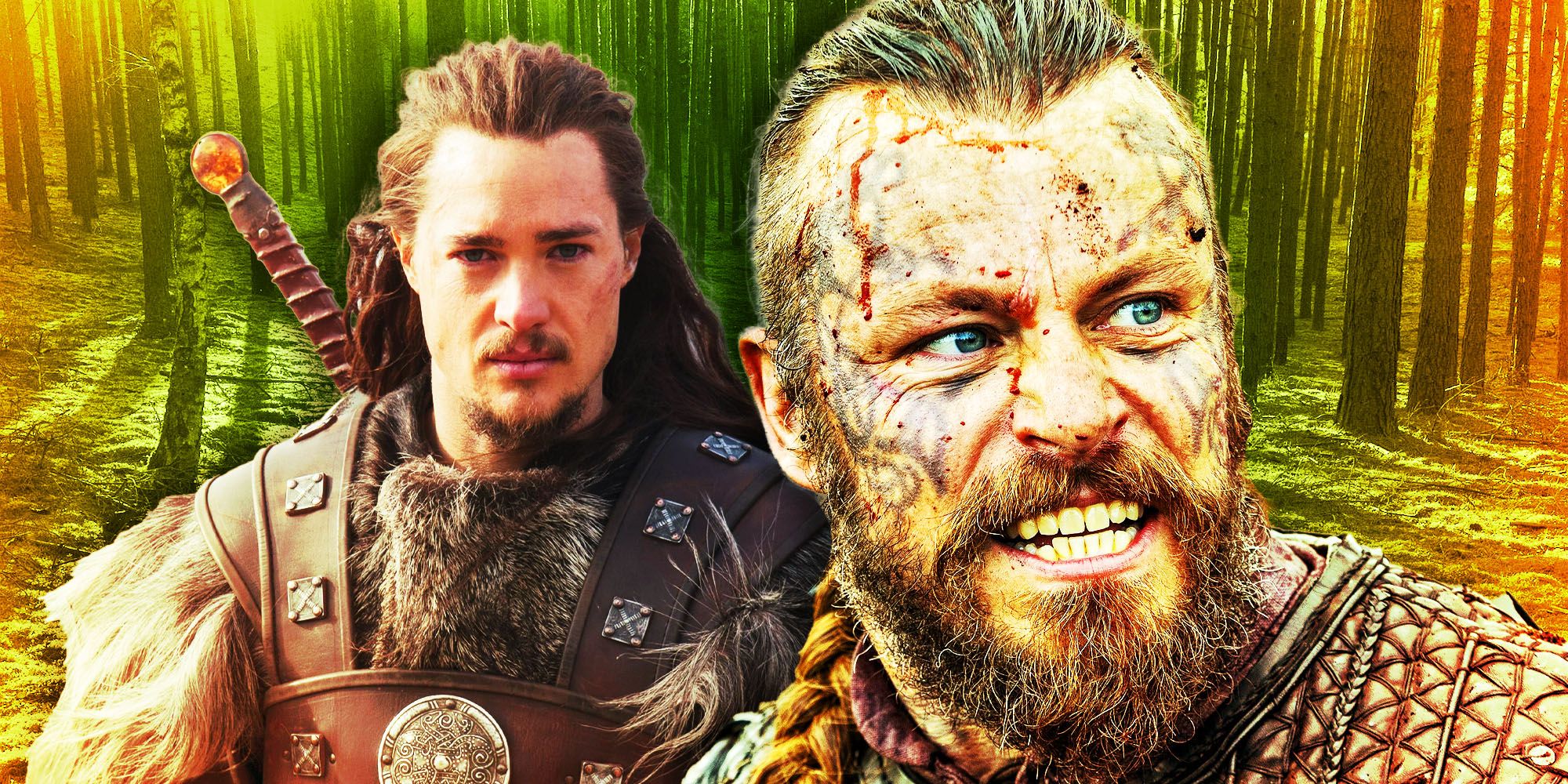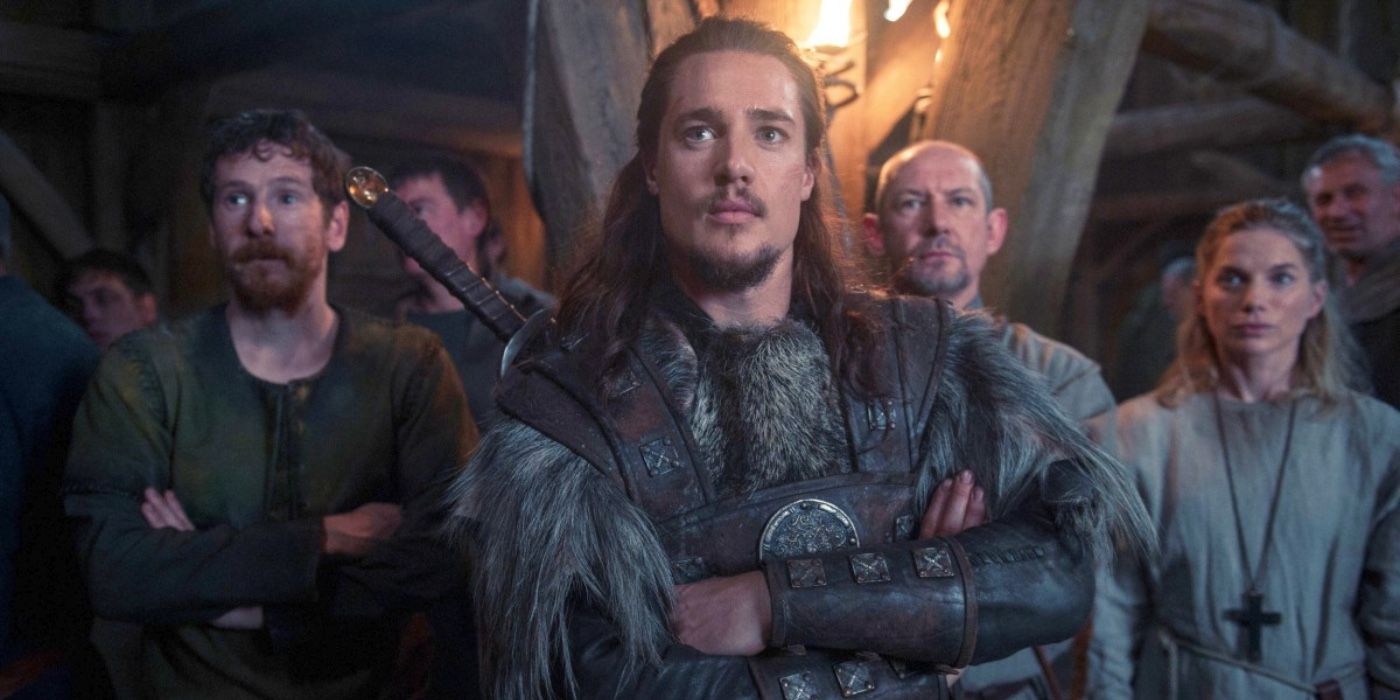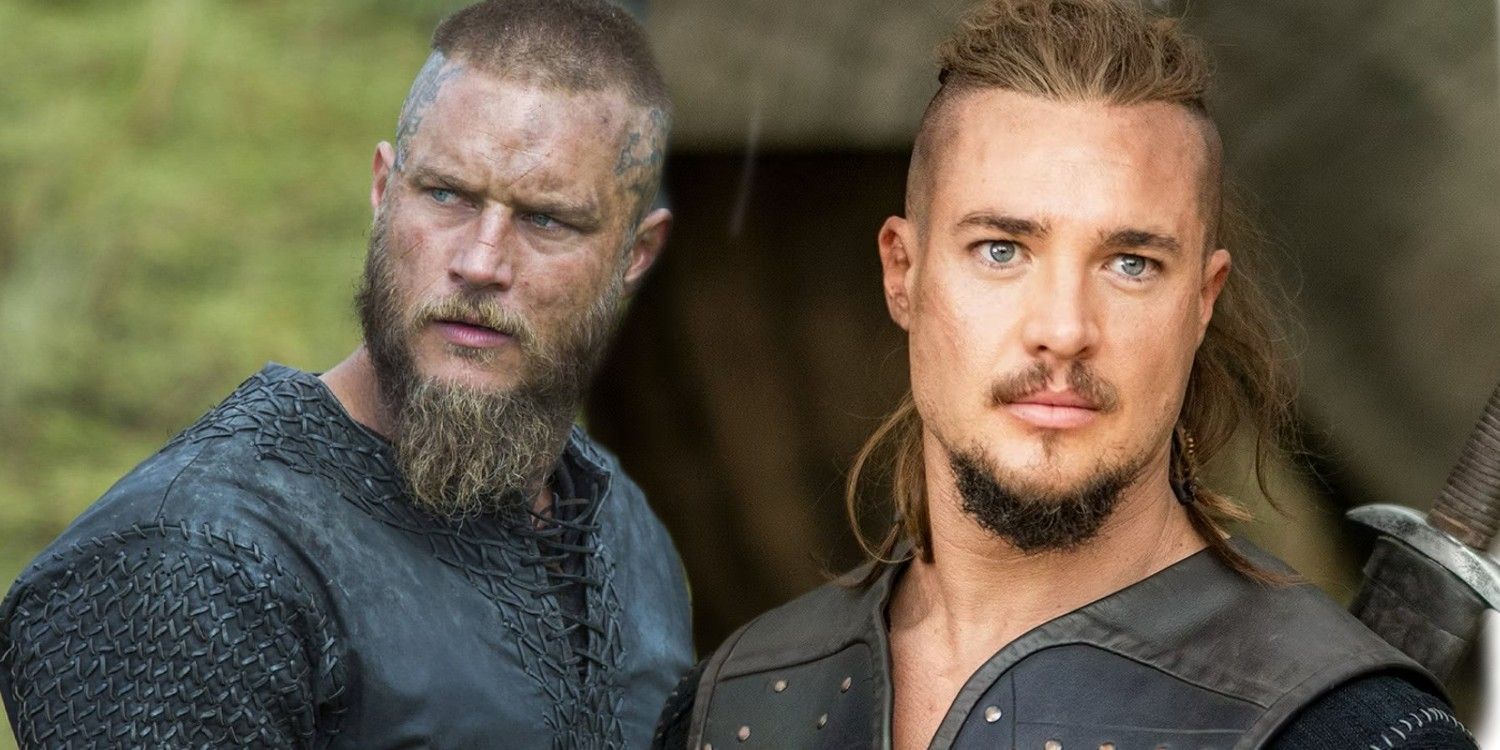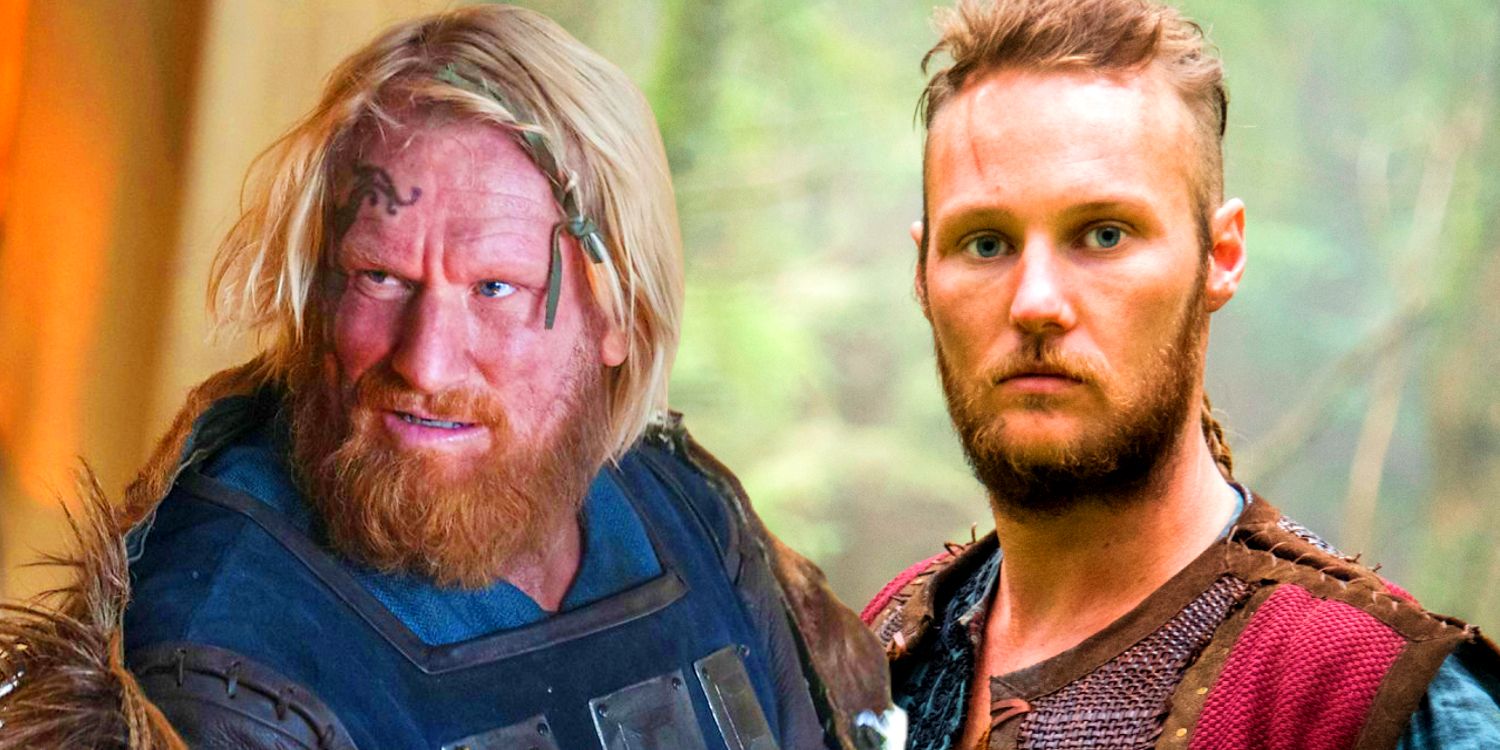
With the series proving to be a huge success, it isn’t all that surprising then when many streaming platforms and channels began creating shows that were quite similar to Vikings. While many of these shows were fantastic, The Last Kingdom was one that particularly drew the attention of Vikings‘ fans as it seemed to follow a similar structure, contain real-life historical figures, and continued to explore the tensions between the Anglo-Saxons and the Danes. Ultimately, this led many to wonder whether The Last Kingdom was a spinoff or a sequel, with some still confused about it to this day.
The Last Kingdom Isn’t A Sequel To Vikings

Although the two shows share a lot of similar elements, sadly, The Last Kingdom isn’t a sequel or a spinoff to Vikings. Instead, The Last Kingdom is actually based on Bernard Cornwell’s popular historical novels, The Saxon Stories, which follow Uhtred of Bebbanburg as he tries to reclaim his home after it was stolen from him when he was a child. Although he is raised by Danes, he soon finds himself struggling to stay loyal to his family as he swore an oath to serve Alfred the Great and the Saxons. The series used the five seasons to showcase this story, with it eventually culminating in the movie, Seven Kings Must Die.
While that may come as a disappointment, some new fans of Vikings will be delighted to know that Netflix did comission a sequel to the show in 2021, titled Vikings: Valhalla. This is set 100 years after the events of Vikings and chronicles the lives of characters, such as William the Conqueror, Leif Erikson, and Emma Normandy. Like it’s predecessor, Vikings: Vahalla also has a talented cast that helps bring these characters to life.
When The Last Kingdom Takes Place Compared To Vikings

While The Last Kingdom and Vikings have different protagonists, the two series do cover a similar period of history of time (The Viking Age). Whereas the pilot episode of Vikings takes place in 793 A.D. and begins with Ragnar’s invasion of Lindisfarne, The Last Kingdom’s pilot opens in 866 A.D., letting viewers see what Uhtred’s upbringing was like before he is taken by the Danes at the Siege of Eoferwic. The show then jumps forward a couple of years, where Uhtred is now an adult and has begun to come up with a plan so he can take back his birthright and home. This essentially means that there is around 100 years between the two.
However, that doesn’t mean this gap didn’t overlap at some point. Given that Vikings’ and the spinoff covers the entire Viking Age (which lasted between 793-1066 A.D.), the show would naturally include similar historical and important moments (like Alfred the Great’s reign [871-99] and the major battles between the two sides). The only major difference is that The Last Kingdom story pays more to the reigns of Alfred the Great, Edward the Elder (899-924 A.D.), and Æthelstan (927-939 A.D.) since they were all important in Uhtred’s story and in the unification of England. The show and movie doesn’t really need to go beyond that.
How The Last Kingdom Characters’ Are Related To The Vikings’ Characters

Despite The Last Kingdom and Vikings not being set in the same universe, the viewers will be able to see a lot of similar and legendary characters appear. For instance, both shows have Alfred the Great but potray the ruler differently (Alfred the Great in The Last Kingdom is a lot older and wiser whereas Vikings’ is younger, inexperienced, and reckless). Alfred’s brother, Aethelred, also appears in both shows. However, he only appears in 3 episodes ofThe Last Kingdom since he wasn’t really important to the story the writers wanted to tell (they just needed to show his death to usher in Alfred’s reign).
These two aren’t the only characters the shows share. Despite playing a bigger part in Vikings (since he was the son of Ragnor Lothbrok), Ubba (or Ubbe) is relegated to a supporting role in The Last Kingdom, playing a minor antagonist in season 1. Although he don’t physically appear on screen, the writers also confirm that Ivar the Boneless exists in The Last Kingdom universe as he killed in season 1, episode 4, while in Irland. By including the same legendary characters and important figures, it seems that the writers of The Last Kingdom and Vikings are ensuring the audiences know just how vital they are to history.





